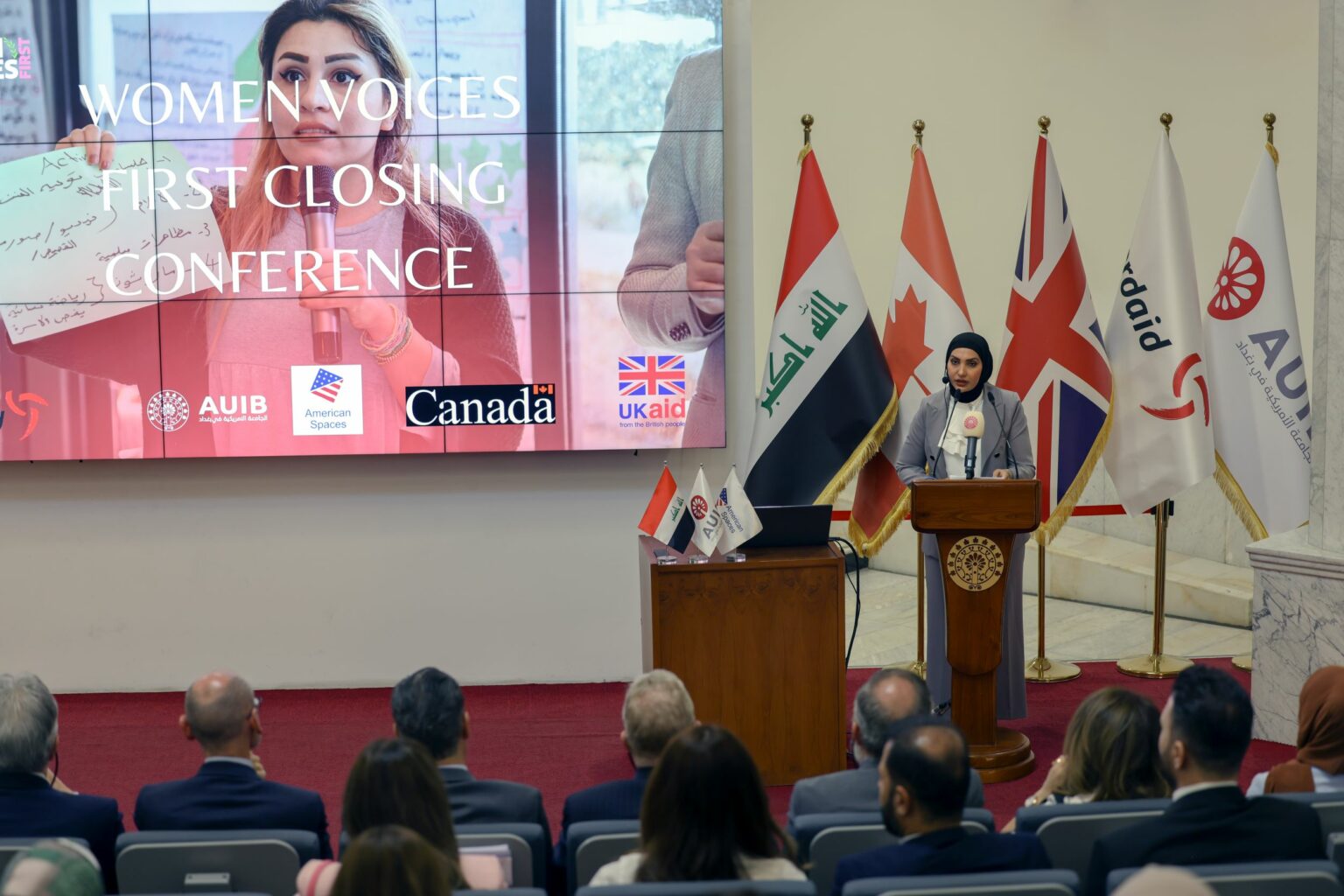The American University of Iraq-Baghdad (AUIB) and its American Space program co-organized and hosted on campus the closing conference of the “Women’s Voice First” program, featuring an exhibition of a few of the participant women’s associations, as well as handicrafts by women engaged in these associations, or who have benefited from their services. The program’s framework is aligned with the “Women, Peace, and Security Agenda” of “UN Women,” and was executed by the organization Cordaid, under the auspices of the British and the Canadian embassies in Baghdad.
AUIB President, Dr. Michael Mulnix, welcomed to campus the distinguished audience, among whom were British Ambassador to Iraq, Mr. Stephen Hitchen, representatives of the embassies of Canada and Finland in Baghdad, Counselor to the Prime Minister of Iraq on Women’s Affairs, Dr. Shahbaa’ Al-Azzawi, and representatives of the United Nations Assistance Mission for Iraq (UNAMI).
The conference celebrated the achievements of the “Women’s Voice First” program over a period of three years, serving to combat “discrimination and violence” against women, and to “break the barriers” that keep women from accessing equal opportunities in various walks of life, according to Senior Program Manager at Cordaid Iraq, Mr. Sarmad Mubarak, who expressed his organization’s appreciation of cooperation on part of the Department of Women Empowerment at the Secretariat of the Council of Ministers of Iraq, as well as various concerned governmental bodies. “The program was able to build real and effective networks among 29 feminist associations throughout Iraq,” including in areas distant from the capital, such as the Sinjar region and the cities of Al-Qa’im and Basra, executing 40 projects that targeted 35,800 individuals by “building the technical capacities of associations” via training workshops and other interventions, explained Mr. Mubarak.
“We decided to establish the program in 2021, and our role was modest,” remarked Ambassador Hitchen, explaining that his country provided grants and training workshops to “build the capacities of associations” involved in the Program, ascribing the successes of the latter to the ideas of Iraqis themselves. “We funded 29 associations and provided direct assistance to 25 thousand women,” including “consultation services to victims of sexual violence,” and even lessons in car driving. “We (the British) think in terms of gradual changes, but ones that are sustainable,” the Ambassador added, speaking of a conviction on part of himself and his fellow compatriots that societies do not prosper without the engagement of women in public life, and without “serving the most vulnerable members” of society.
